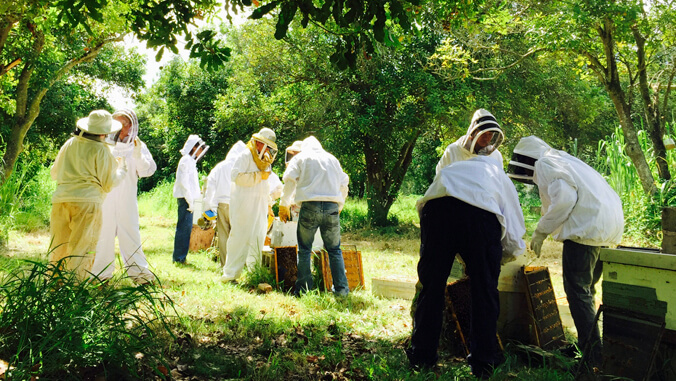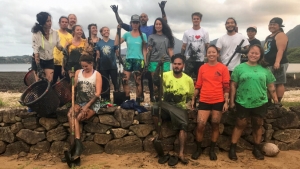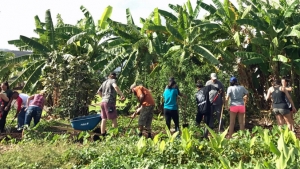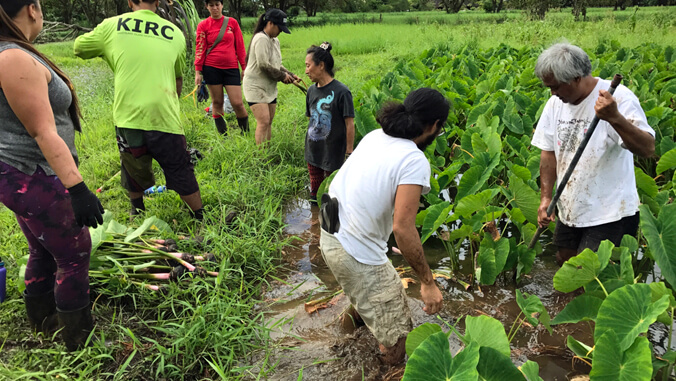
A $1-million donation to the University of Hawaiʻi–West Oʻahu Sustainable Community Food Systems program will support undergraduate and public education, collaborative research, communications and planning activities to enhance the long-term sustainability and resilience of Hawaiʻi’s food system by creating a new Hawaiʻi Institute for Sustainable Community Food Systems.
The gift from the W. K. Kellogg Foundation will also provide scholarship and professional development opportunities for Native Hawaiian and underrepresented students in higher education by providing eight $5,000 scholarships each semester to outstanding students enrolled in the sustainable community food systems degree program.

“The Hawaiʻi Institute for Sustainable Community Food Systems is intended to be a decentralized food system transformation hub that is grounded in complementary STEM disciplines and informed by community needs and Indigenous knowledge and practice,” said Albie Miles, assistant professor of Sustainable Community Food Systems at UH West Oʻahu. “By coordinating strategic partnerships, new educational programs, applied research, planning and policy analysis, we aim to make lasting change in the health, equity, resilience and sustainability of our food system.”
The Hawaiʻi Institute for Sustainable Community Food Systems aims to bring together UH faculty, community leaders, Indigenous scholars and practitioners, planners, state officials, members of the business community and producers into closer collaboration to better understand and address Hawaiʻi’s key food system challenges and help achieve the state’s commitment to local and UN Sustainable Development Goals by 2030.

UH West Oʻahu Chancellor Maenette Benham said, “The Kellogg Foundation’s investment in the important work of our Sustainable Community Food Systems program affirms the importance of a resilient food system as a cornerstone of healthy communities and families, and an essential key to addressing the impact of climate change in the Pacific and across the globe.”
Miles added, “The global food system is now understood as the primary cause of global environmental change and negative public health outcomes, but is also one of the strongest levers to optimize human health and environmental sustainability on Earth. Recent climate events and the COVID-19 pandemic have exposed a range of food system vulnerabilities and magnified the need for policymakers, educators, researchers, planners, citizens and practitioners to increasingly work together on a common vision to advance the health, equity, resilience and sustainability of the food system of Hawaiʻi and beyond.”
Students interested in the sustainable community food systems program should contact Miles at albie@hawaii.edu.


